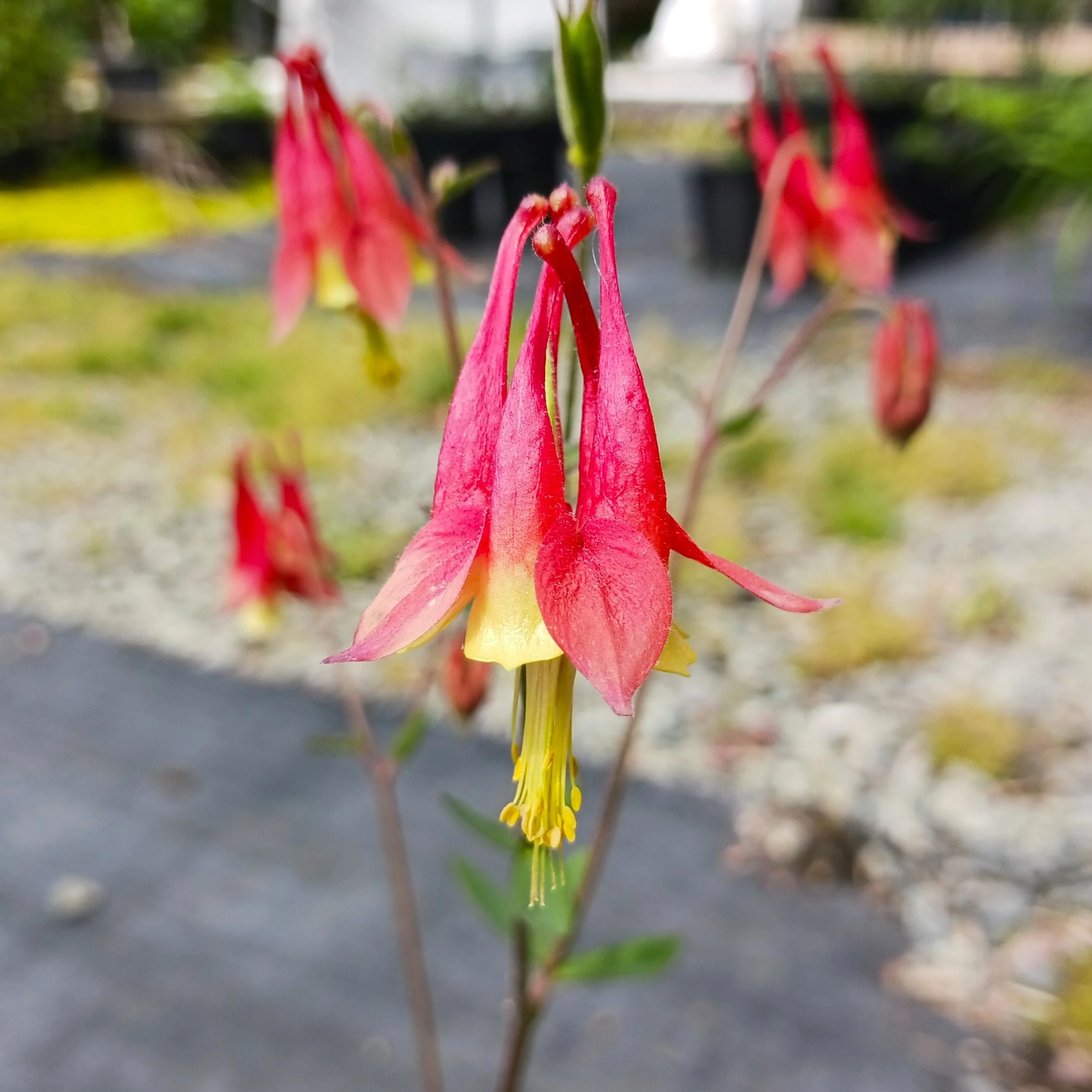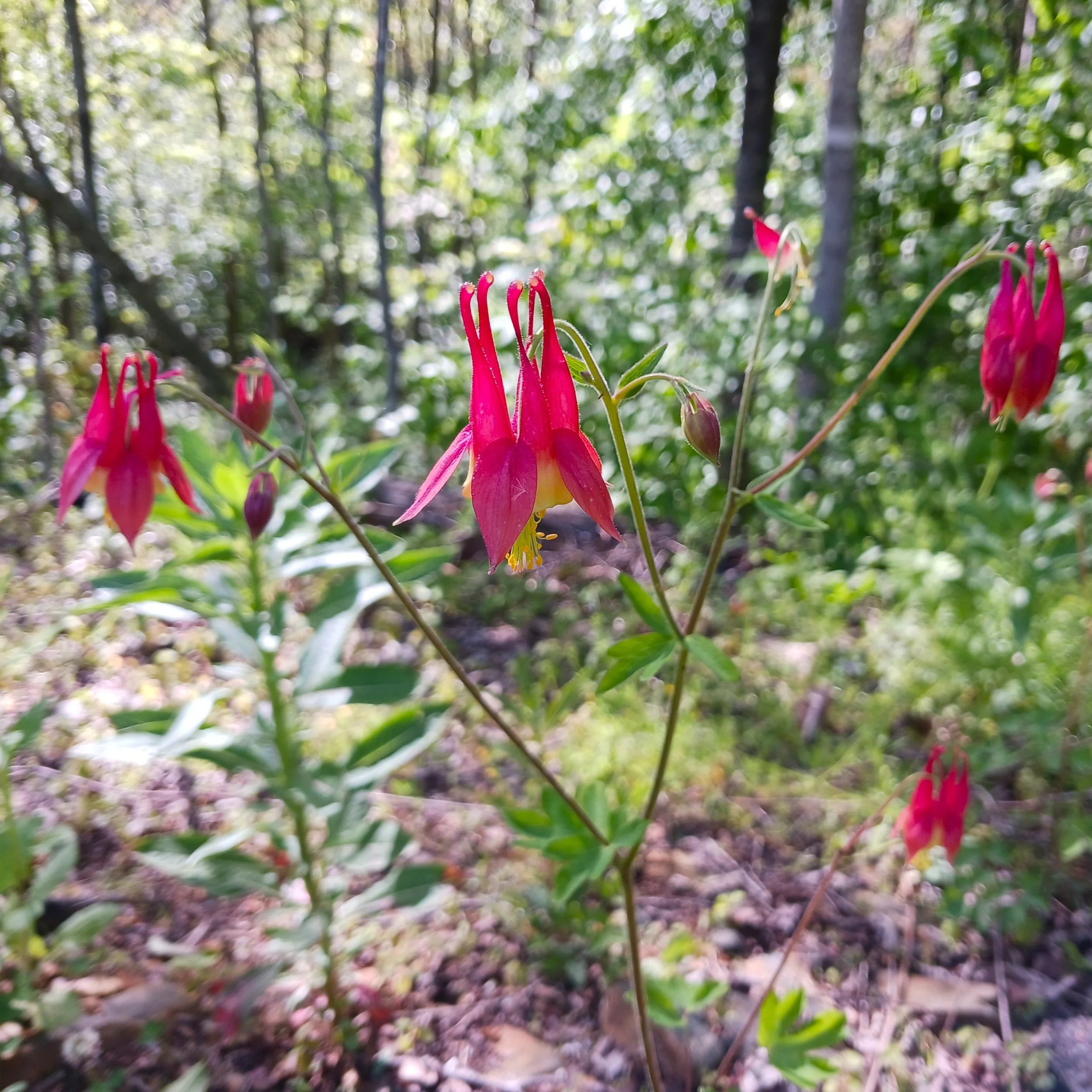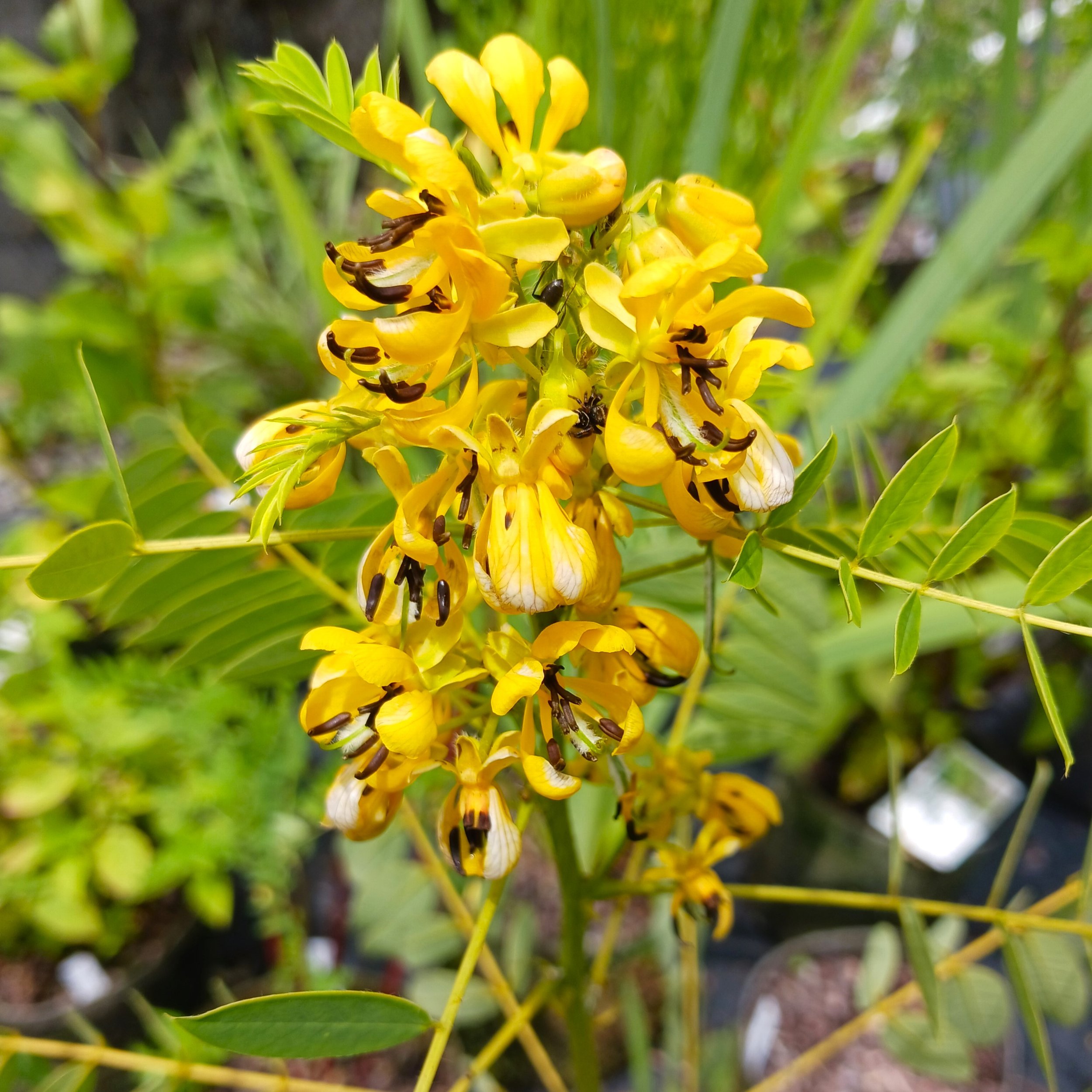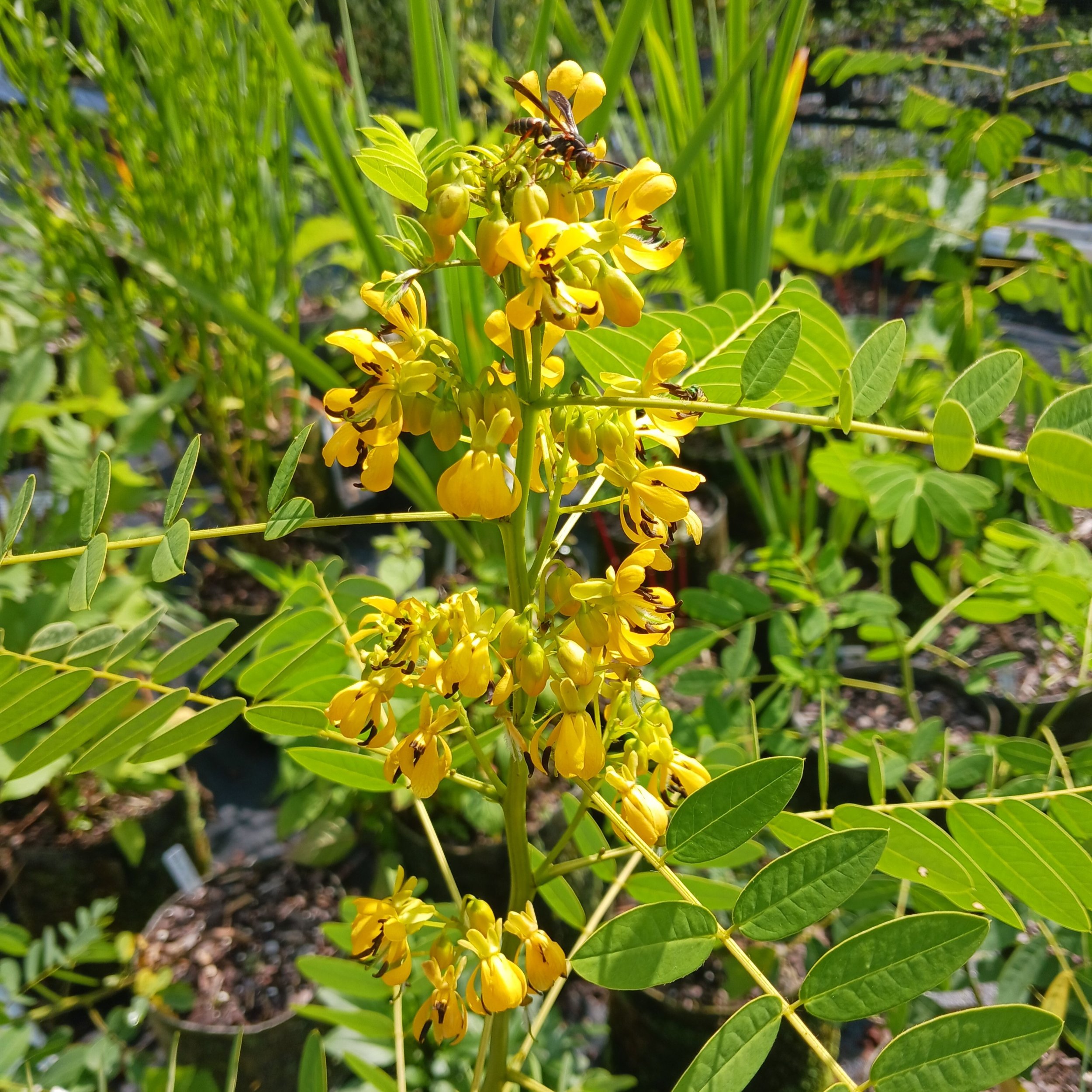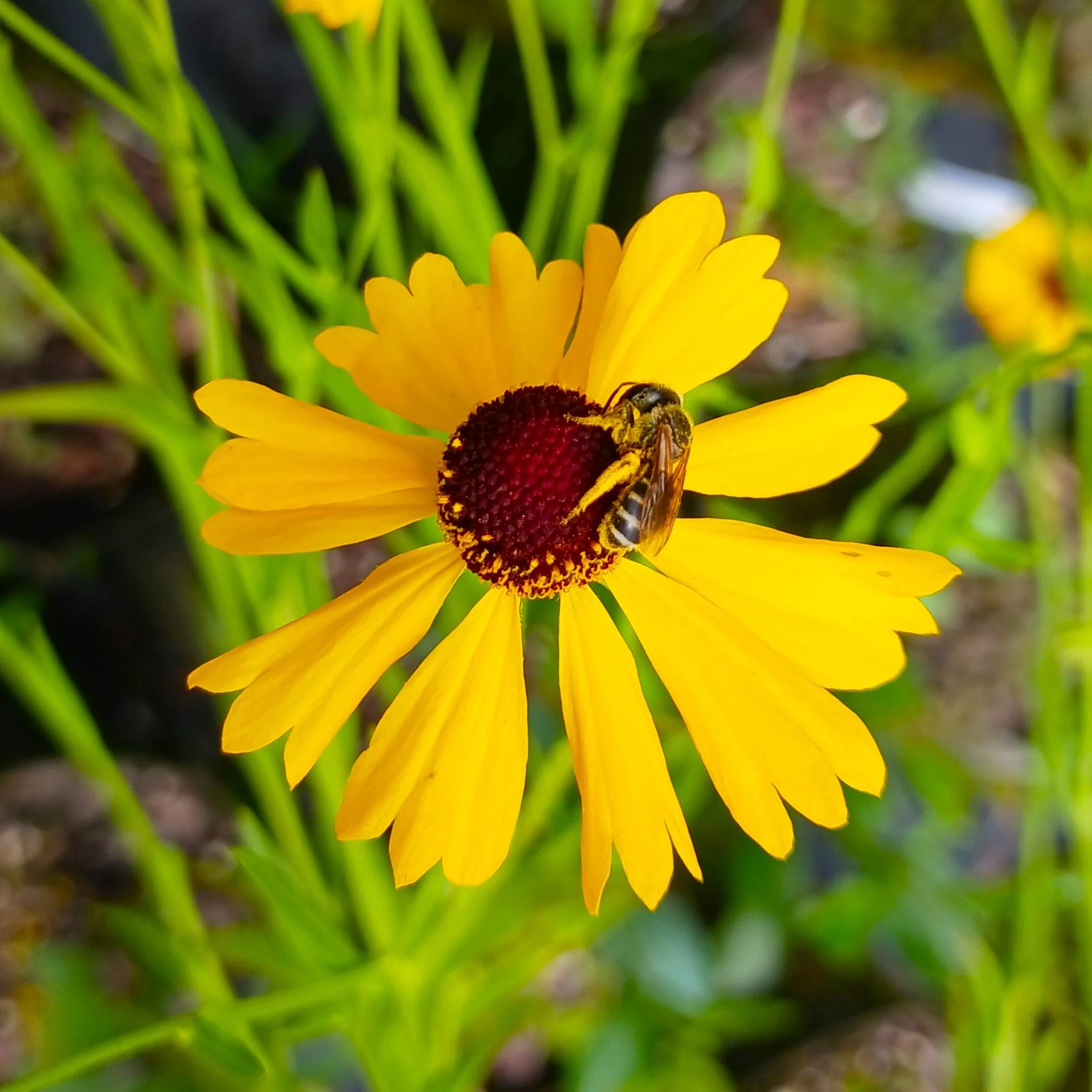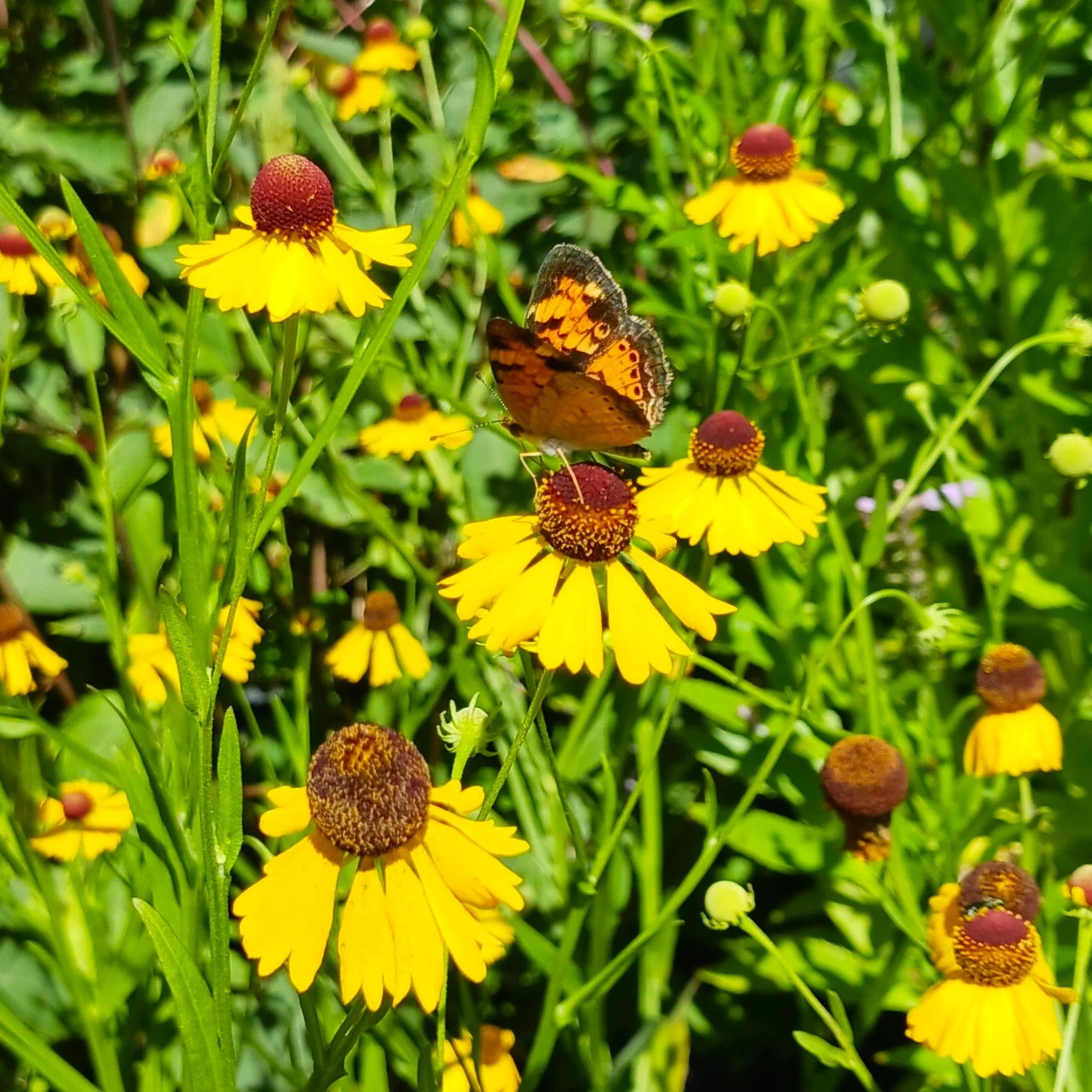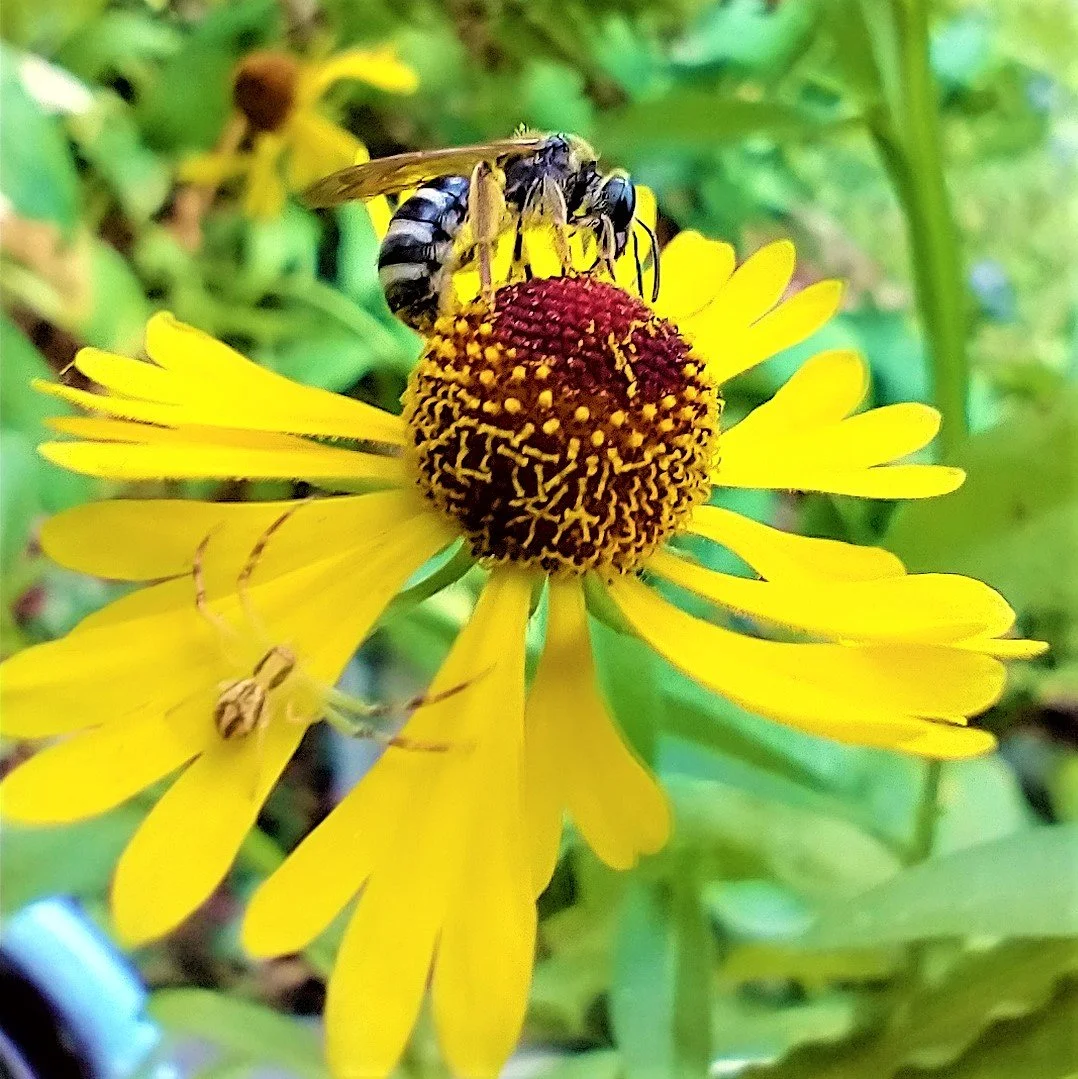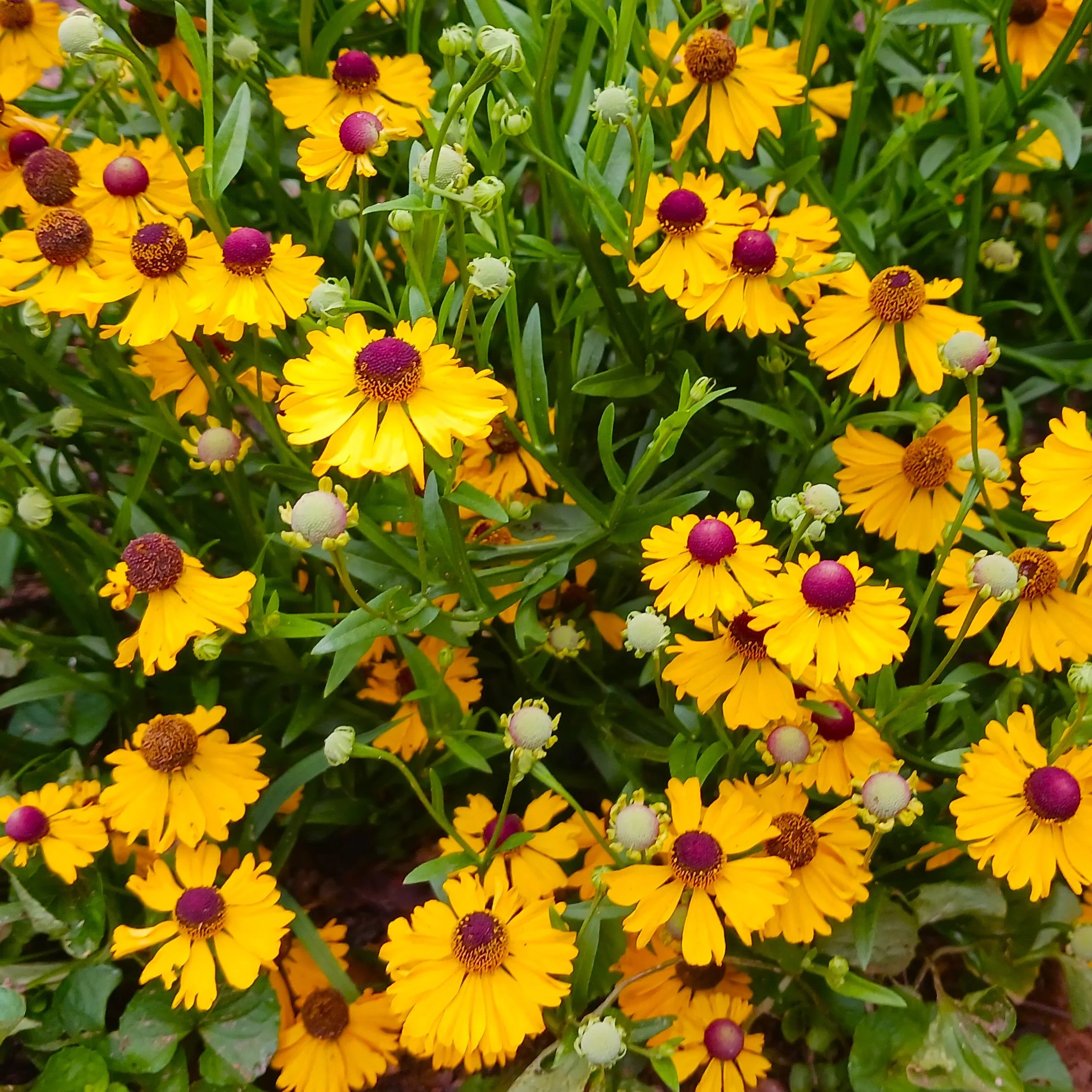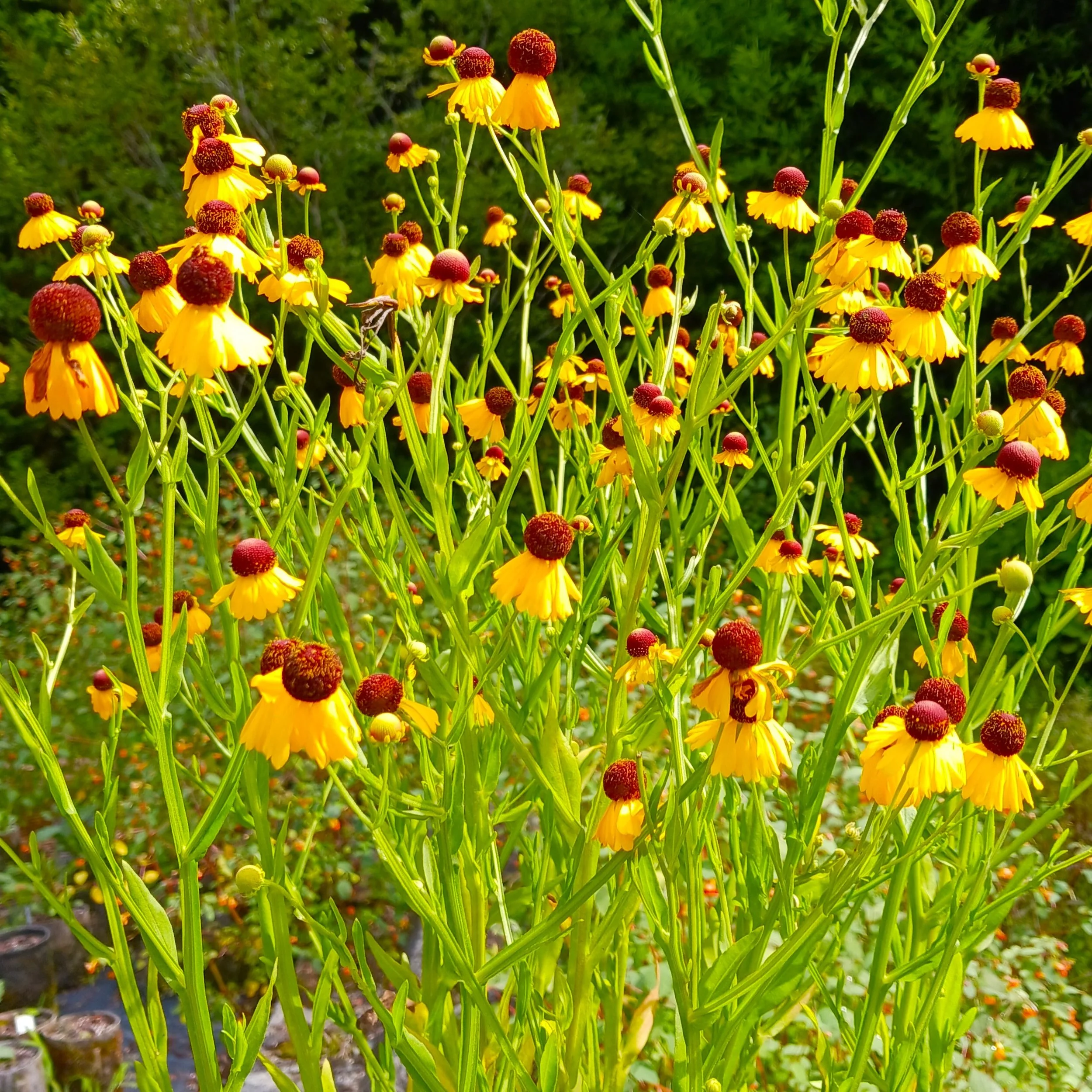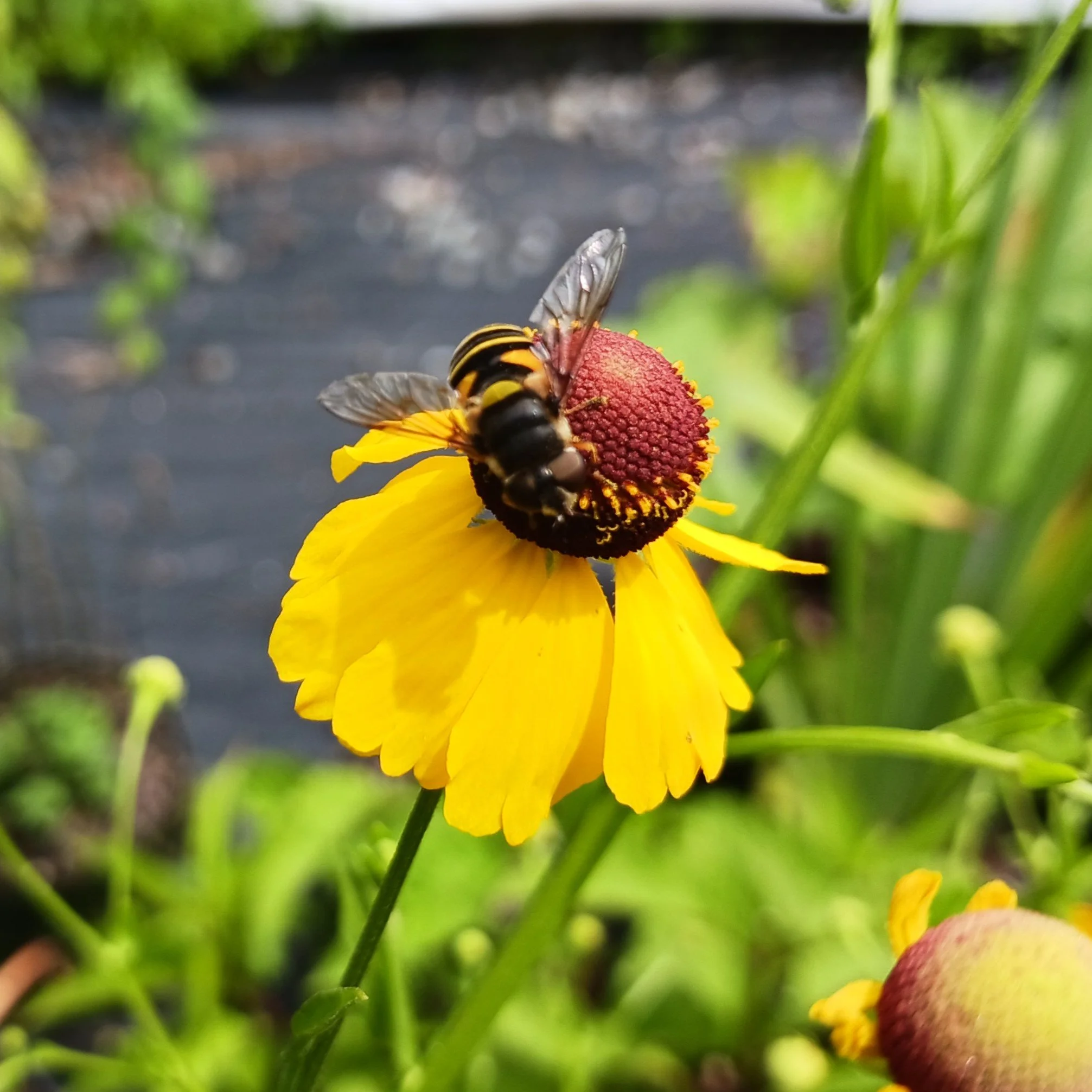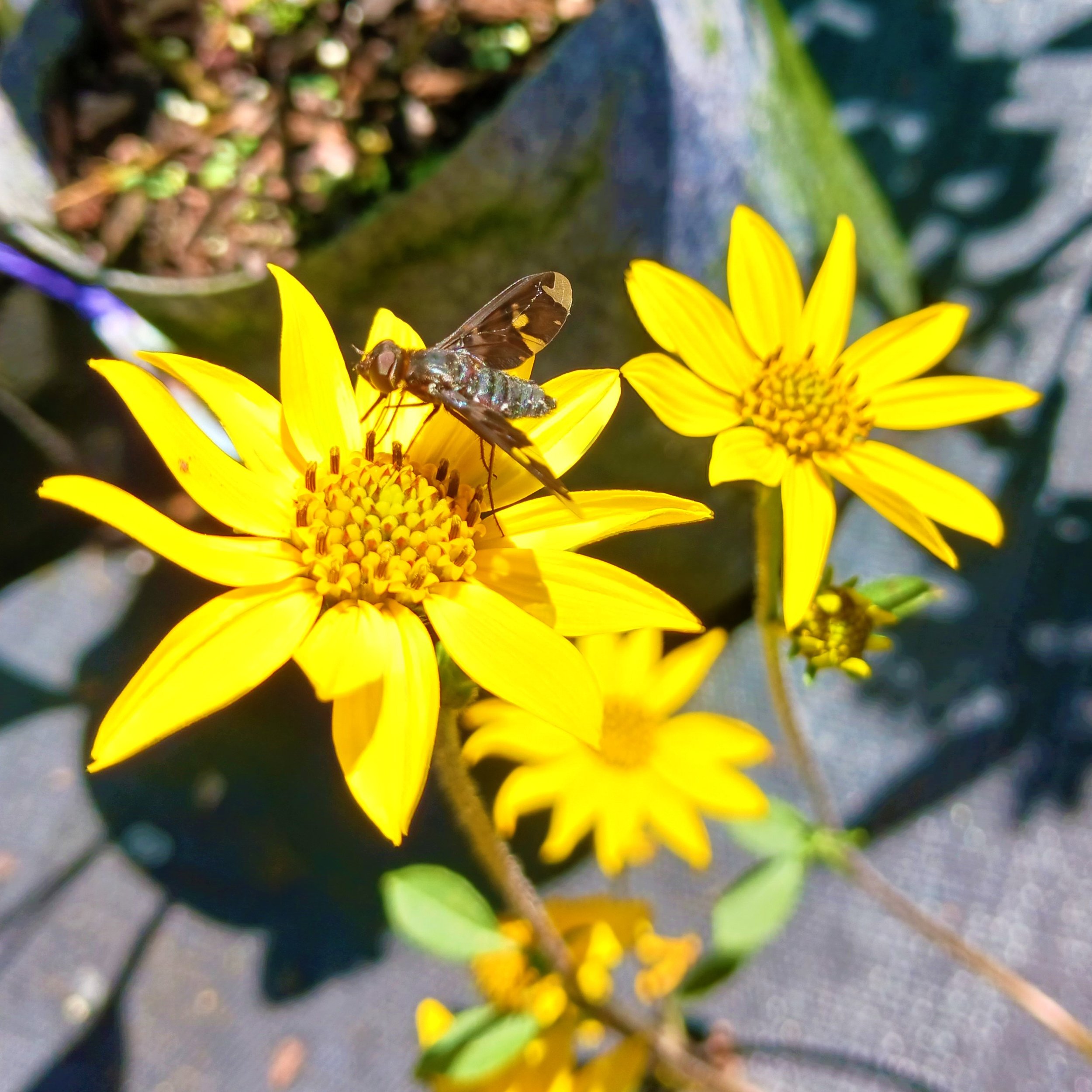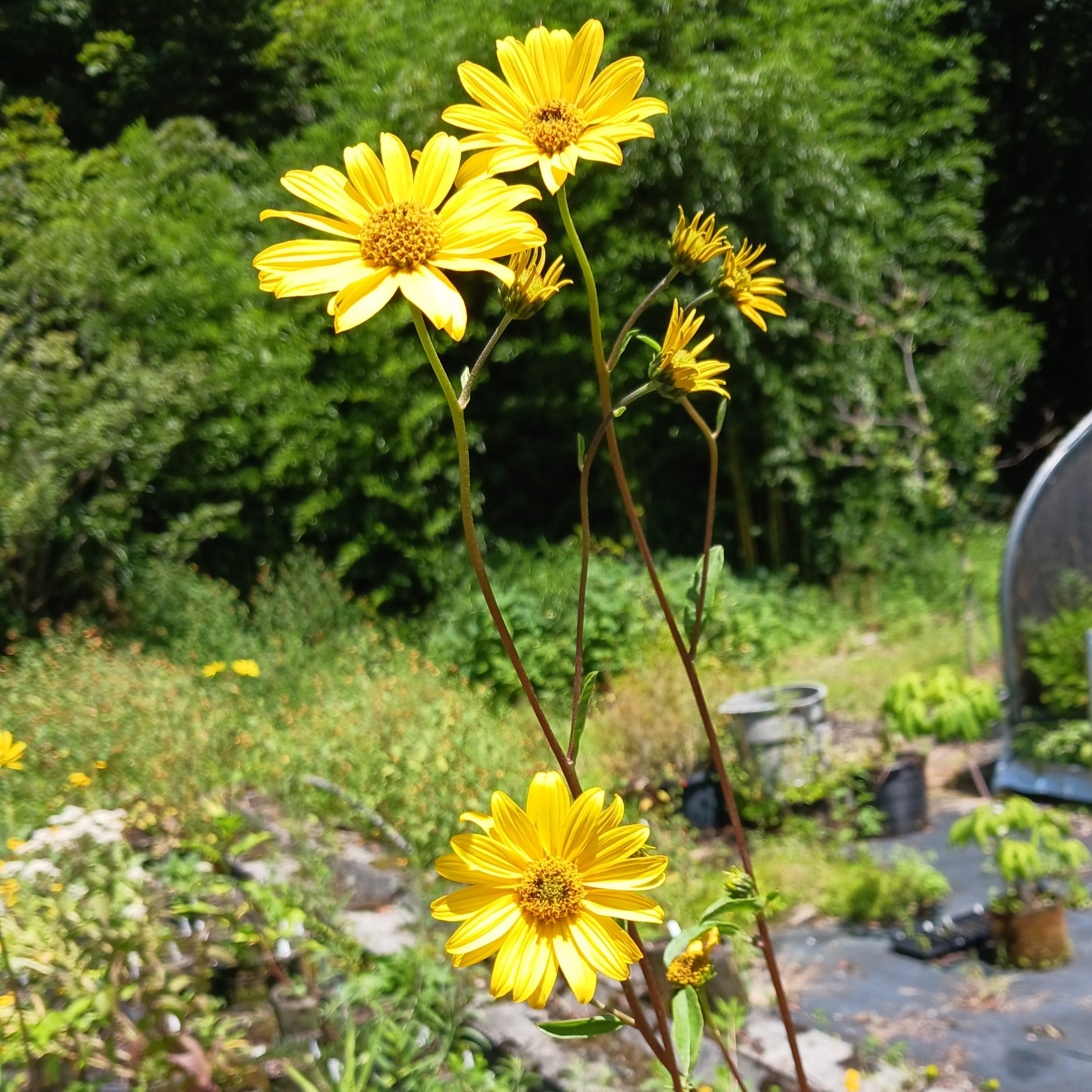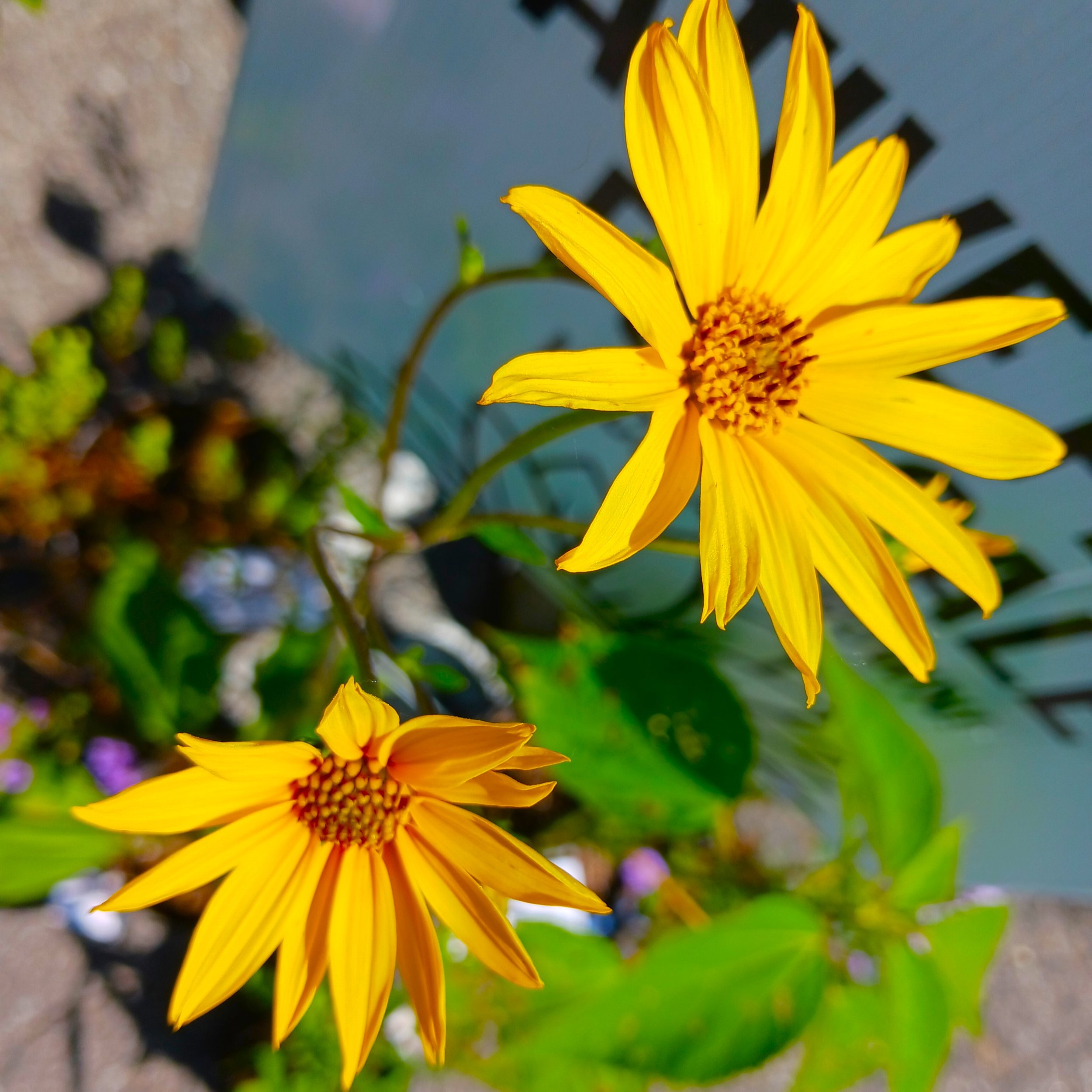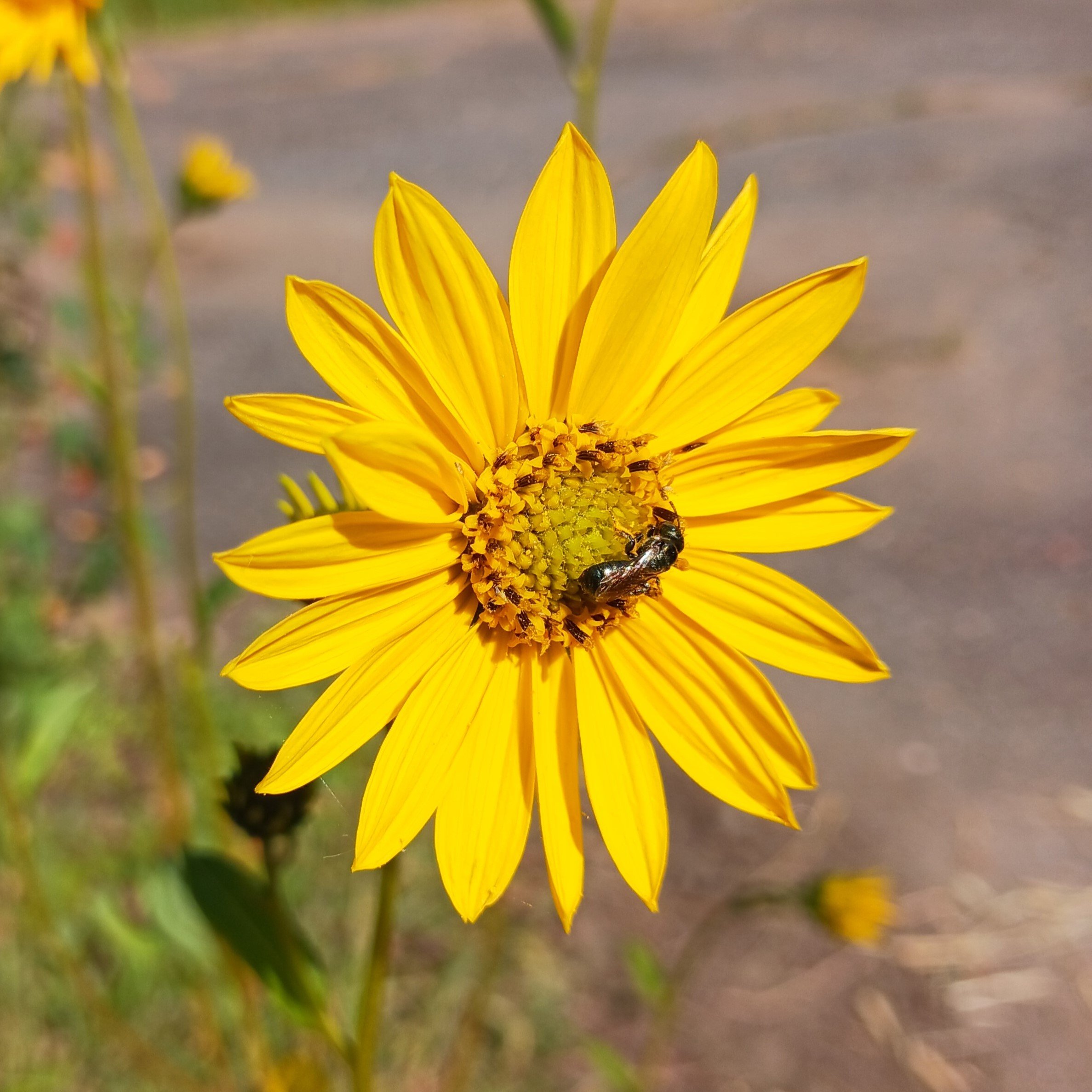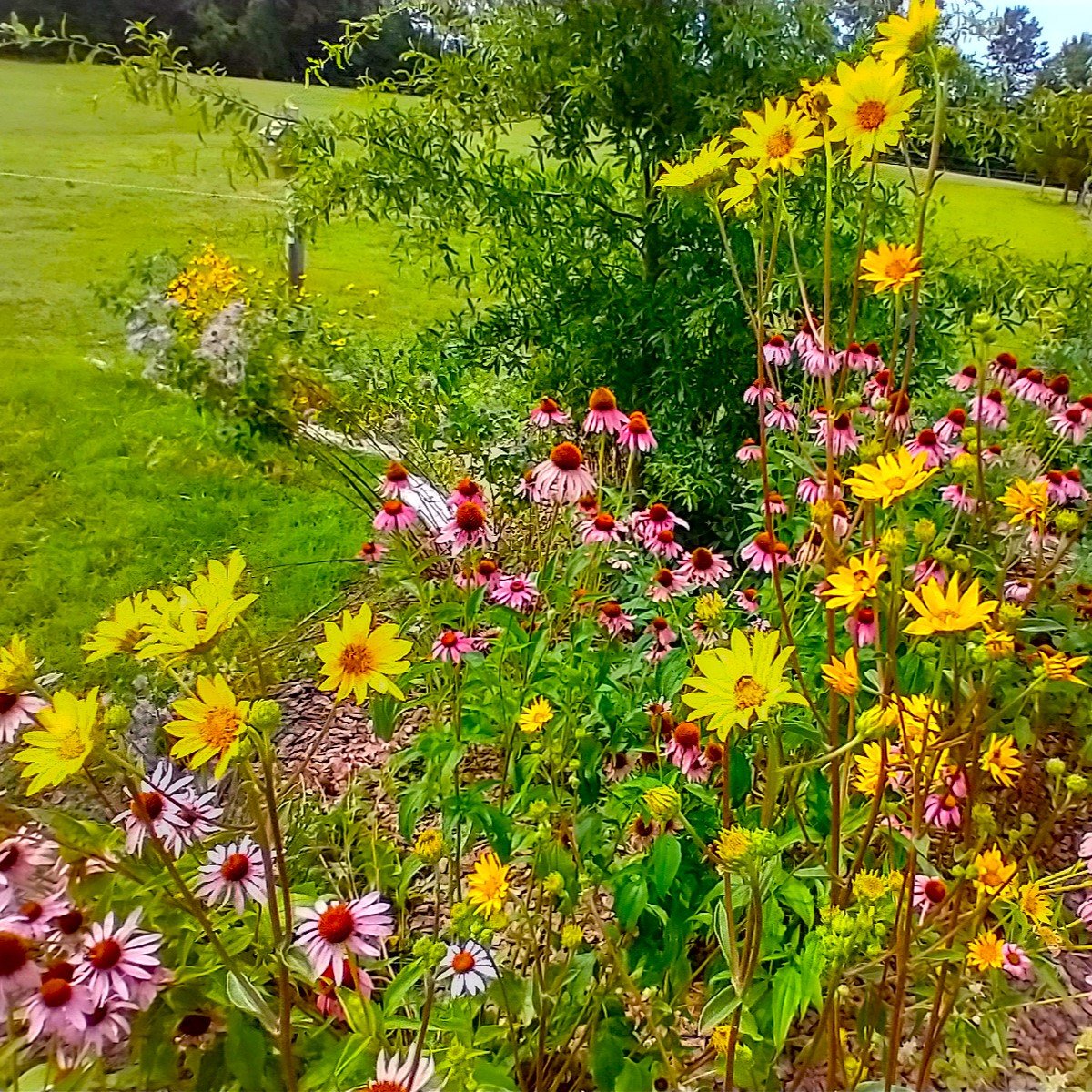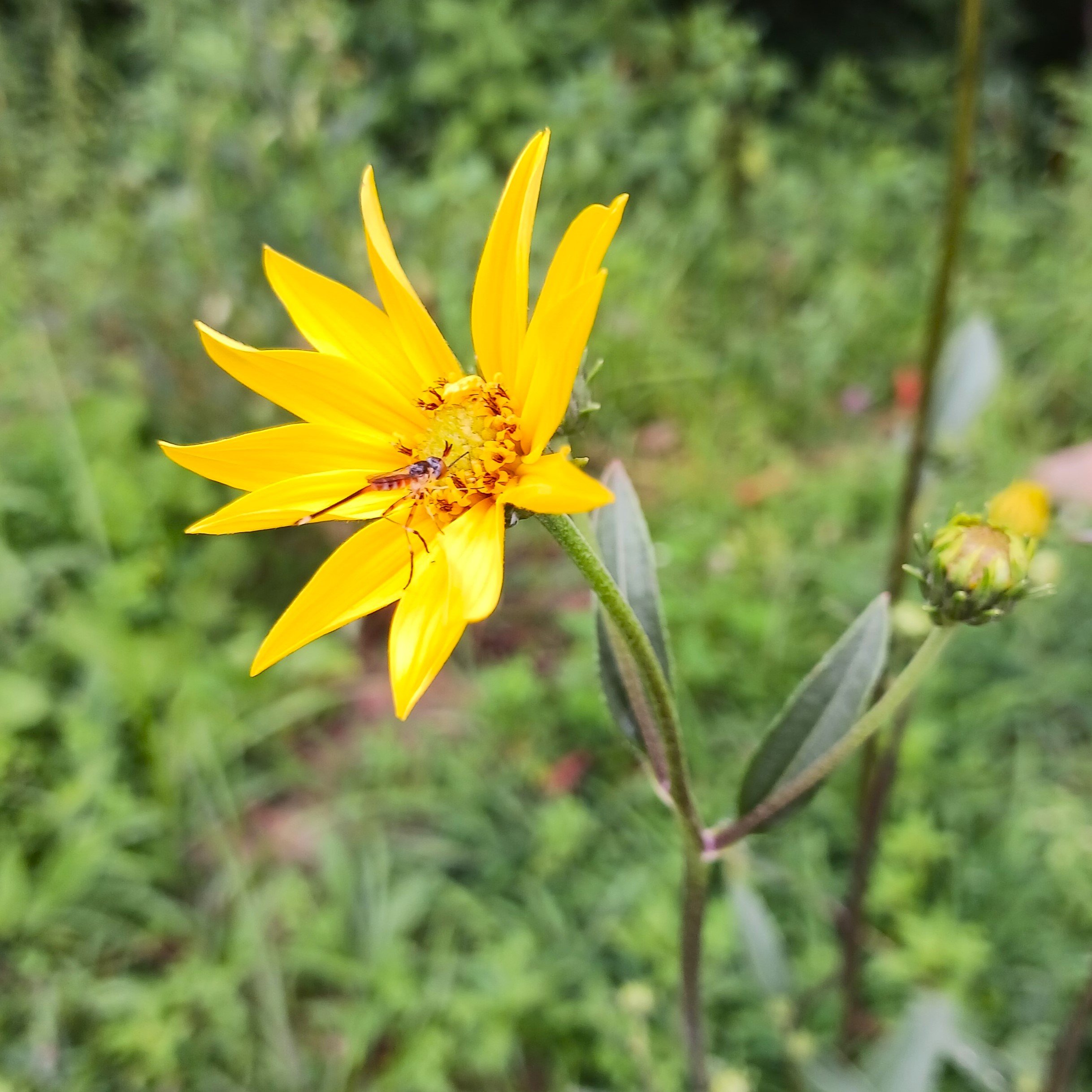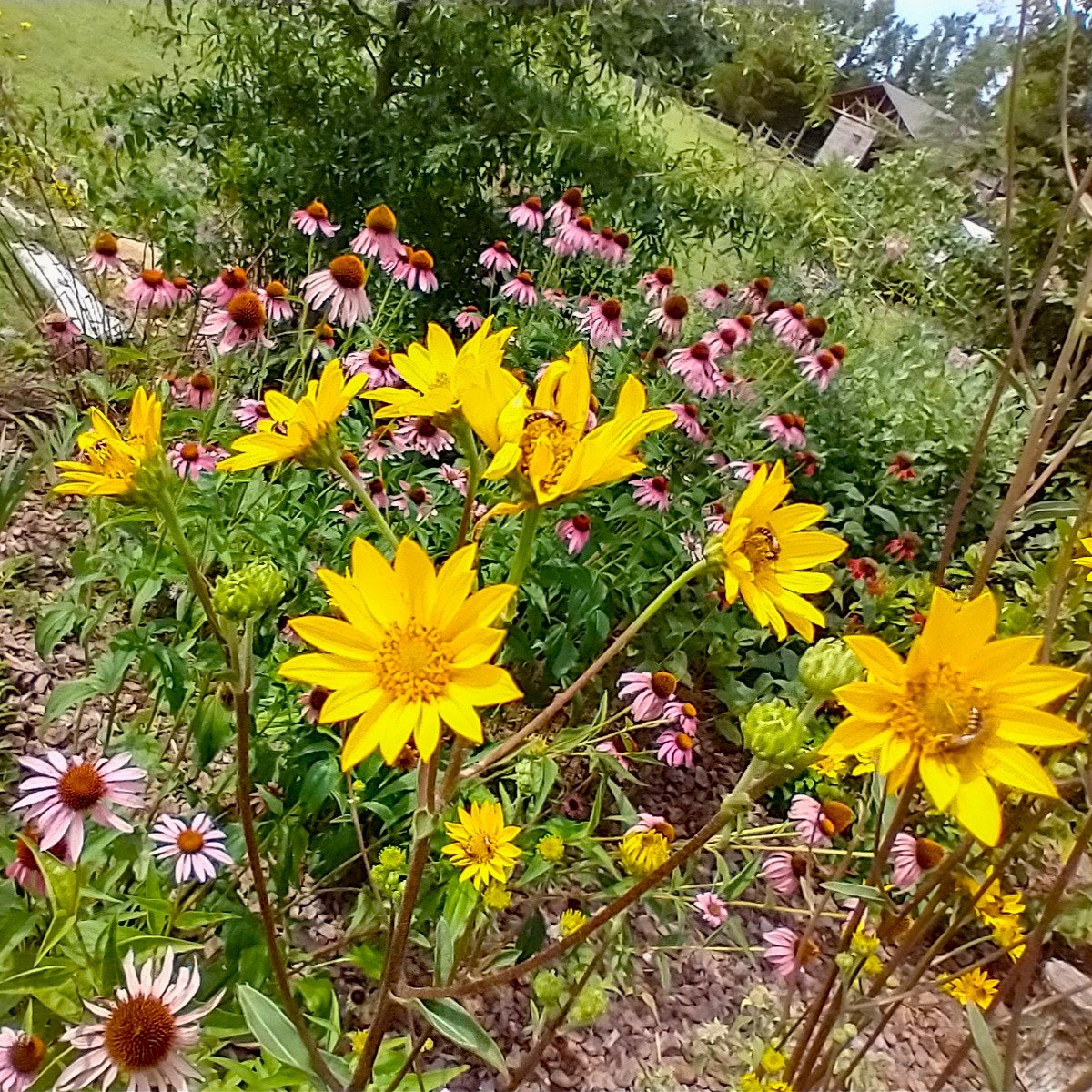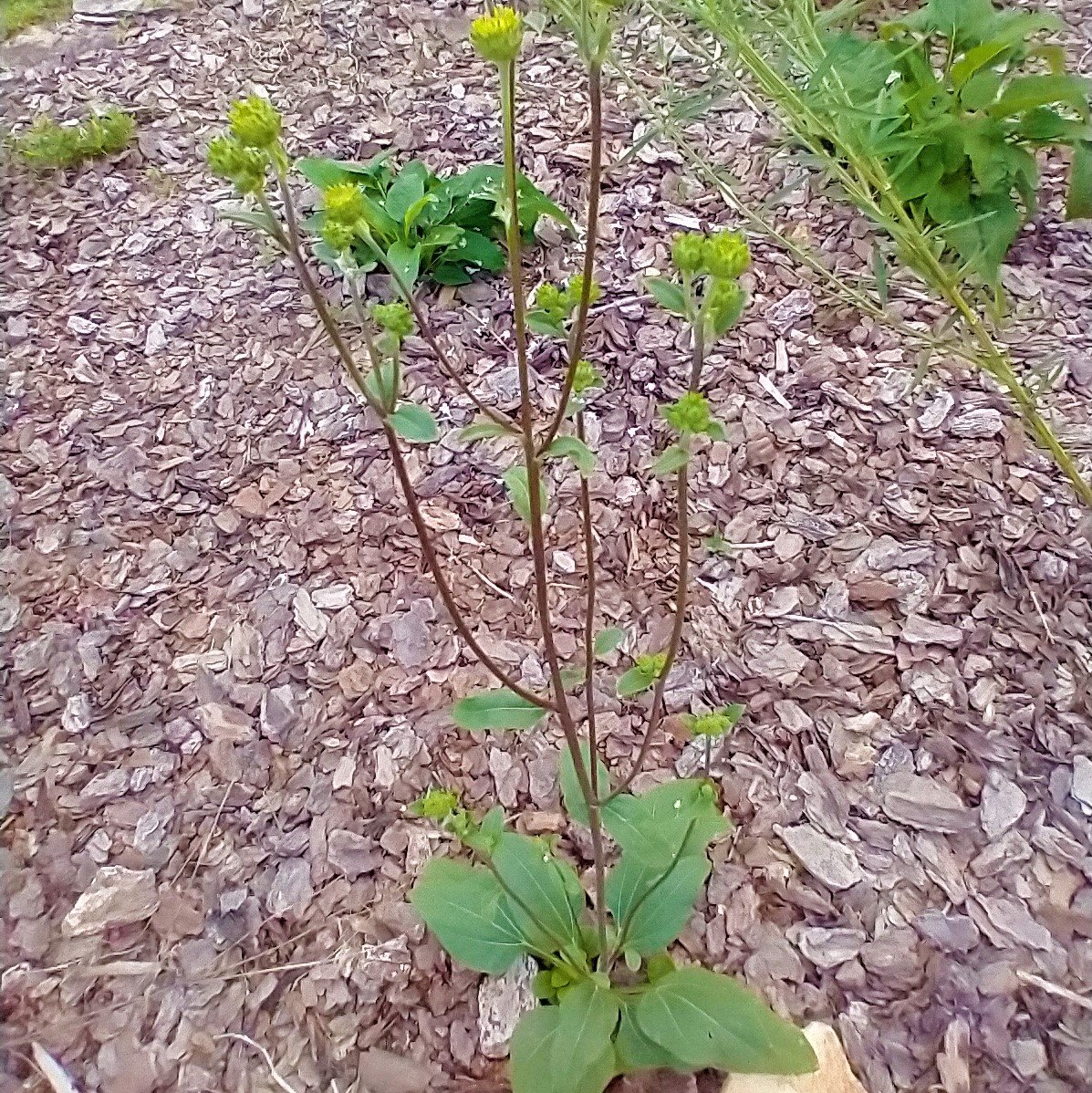NC Ecotype! Scutellaria incana var. punctata is a hardy mountain wildflower found in a range of conditions, with unique round blue flowers appearing profusely from July to August once established. This ecotype originated in a wild population in Haywood County, NC and has proven a very adaptable new addition to local native plant gardens. Scutellaria incana var. punctata performs best in moist clay mountain landscapes with at least 6 hours of full sun, but it can also bloom in shadier spots, even in the hot, dry weather of the Piedmont ecoregion. It grows more slowly in dappled shade but will tolerate drought even better. This species can grow quickly, creating a showy floral display up to 3’. It is less palatable to mammalian herbivores, so is an option to consider in gardens frequented by deer or rabbits.
The unusual shape of the delicate Scutellaria incana flowers selects for more specific pollinators, such as bumblebees, butterflies, and longer tongued bee flies. They are a good host plant for other types of insects, including one specific leaf-miner moth species in our region, and several species of flea beetles. This interaction may attract songbirds foraging for tiny insects for food.
Pollinators: bumblebees, halictid bees, butterflies, bee flies, wasps
Host Plant for Butterflies/Moths: Prochoreutis inflatella
Dependent Species:
Wildlife Value: flea beetles
Deer Resistance: Good
Native Region: Appalachian Mountains, Piedmont
Seed Origin: Haywood County, NC
Ecoregion: 66 - Blue Ridge
USDA Zones: 5-8
States found in our region: AL, GA, NC, SC, TN, VA, WV
Other states found:







